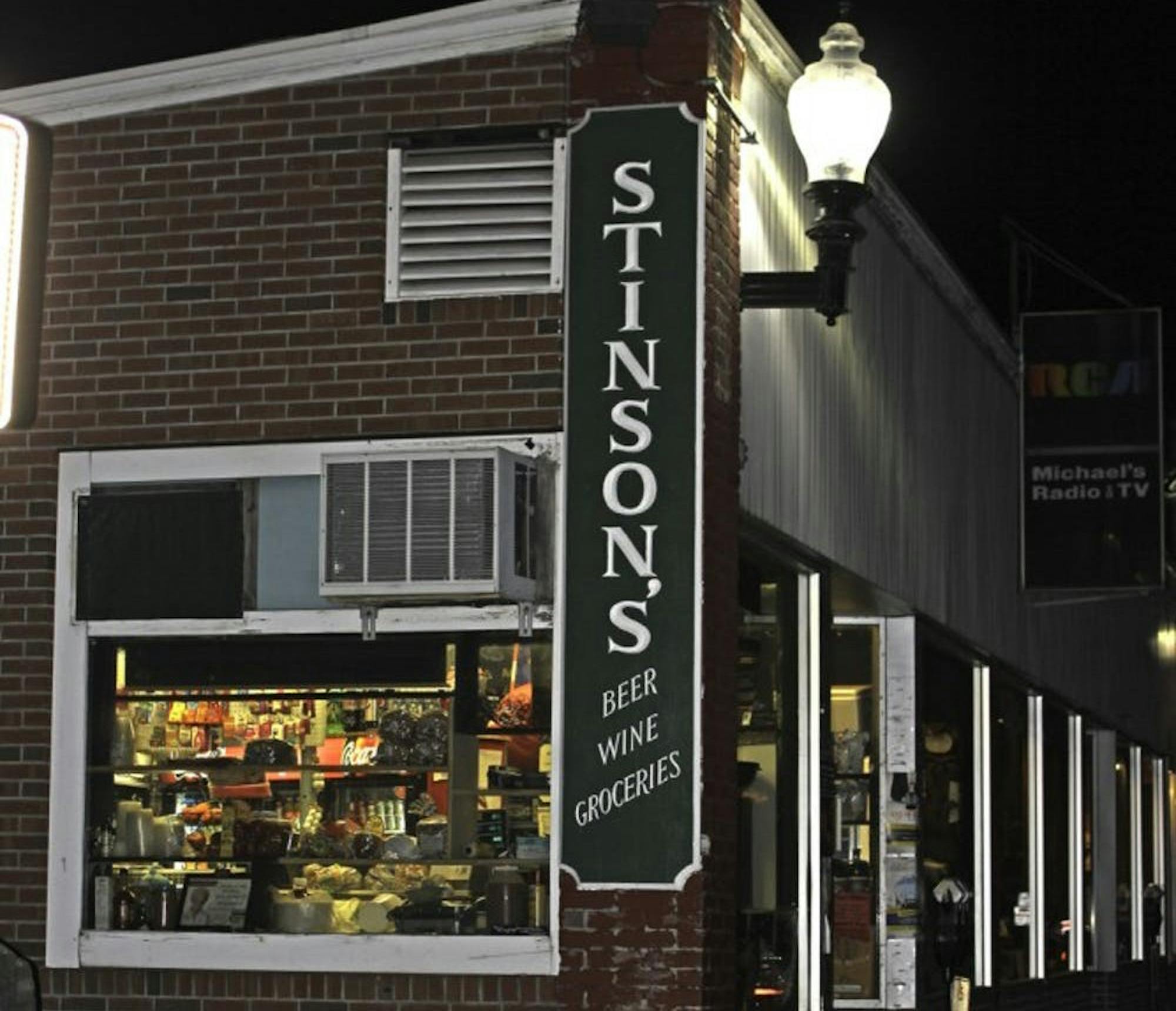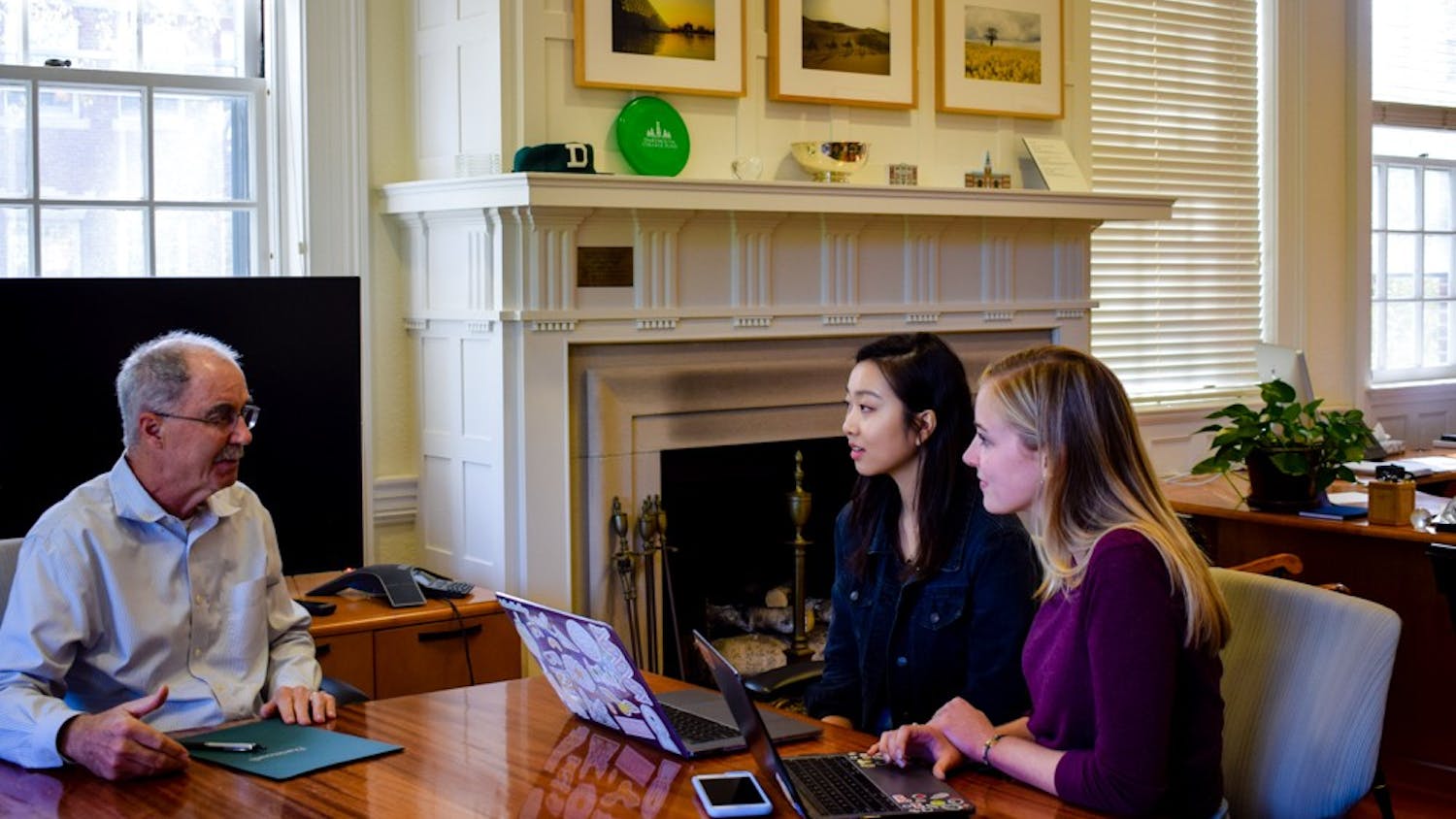Many people at the College know of as Jack Stinson as a Hanover fixture. The owner of Stinson’s Village Store and a common caterer for the College — such as for the First-Year Trips program — Stinson has seen Hanover and the College change and adapt over the last 40 years. He spoke with The Dartmouth about his experiences and relationship with the College.
How long have you been in town?
JS: We got the store from Moe Halligan in September of ’79 — just about the time that EBA’s came in too. We’ve been here, we’ve gone through the busy beer times when there was only kegs on campus and no such thing as a 30-pack. It was all bottles and then all kegs. And then when the kegs got ripped out of the fraternities, 30-packs came in. Milwaukee’s Best was a big thing, and then it went to PBR, and then Keystone. And that’s where we are right now.
Do students typically buy alcoholic beverages at your store?
JS: Well, they do. There’s a bunch of graduate programs, like Tuck. They love the value of having kegs, because kegs are a better value than bottles, especially for large groups. We do reunions. But there’s other places. We’ve never had all the business, and the fraternity system is every quarter — every new term, there’s a new social chair who’s gonna come in and do a better job and run around. And some of them have unlimited time and they can run around to different places and save 50 cents, 25 cents, and pick it up because they’re not paying for the gas. So we’re controlled by the beer prices, and we try to keep it low and keep good selection.
What’s the most common item you sell here?
JS: Most of the sales are beer and cigarettes. A long time ago we recognized that the beer sales were going down, so we do barbecues. We do parents’ weekend barbecue for 1,100 people, and we do a lot of department and end-of-the year things, sometimes some events for residential life or different residential communities in the summer for a short time. You mentioned Trips. We were lucky enough to get that, too. We have these outdoor, expensive steam tables so we can serve quickly and everyone could sit down together.
What has it been like to meet all the first-year students at the beginning of the year?
JS: Well, I think that’s one of the greatest things, because you can recognize it’s great publicity for us. It’s great that we do it. You get to see the temperament of the individuals. Some people are gregarious, others are quiet and set back. But I’ve had the great opportunity in the beginning to work with the trip leaders, and I think that’s one of the biggest values. A lot of trip leaders are like mid-management of the College. They’re people who are doing things for the College and believe in the College — kind of giving back their time. A lot of times in the past we never get to see students until junior, senior year. We’ve missed everybody, so it’s a good little shot to get on the map.
How have you seen the town change over time?
JS: Back in the day, we had five people delivering to the College. We don’t do that anymore. And we usually actually delivered to the dormitories. But the drinking age has changed, it’s being enforced, and there’s liability, so it’s a natural transition away from the heyday of the 18-year-old going to College. When we started to notice it a bunch of years ago, and that was when the convenience store at the College came in — that changed our business dramatically. It’s the same footprint, but our 30-pack cooler over here was all laundry detergent. We did 32 cases of groceries up this aisle. We did 15 cases of yogurt a week. So you walk in, and it would be this little bodega like the ones that you’d go into the city and see. But the College put a convenience store in Collis.
A big difference for us was also when President Hanlon decided to ban hard alcohol. That was very good for us. We’d go out to the back of the car and we would lose hundreds and hundreds of 30-pack sales because people’s cars would be packed with hard alcohol. When they made the decision to stop that, they still had their tails, meetings and stuff, but they went to something sweet like cider, and then White Claw. We used to have an unbelievable amount of fraternities running back last-minute, just before we closed, to pick up extra. Now, that doesn’t happen. We used to stay open to 11:45 last-minute. Now, that whole behavior has changed for us. It’s reduced our hours at night — the liability of people picking up last-minute and the cops driving around.
Do you see a lot of alumni come back during the big weekends?
JS: Oh, yeah. Some of them even after one, two years are coming back. I don’t think there’s any other college around the world that has as much alumni support as you guys do. So we’re lucky to have that, because then all of a sudden in the summer, they come back. So it’s great to see all the students; you remember them and stuff like that.
With the large student population, do you see a lot of people coming in trying to use fake IDs here?
JS: A long time ago, someone on campus had a $50,000 photocopy machine. In one week, we had 18 fake IDs. So I took four to eight of them up to the dean. In three weeks, they figured out who was doing it. We had to make a decision, because under New Hampshire law, you can give it back to them and let them go. But if we get a fake ID, we turn it over to the police. In New Hampshire, for us, three strikes and you’re out in three years. So if you’re at one, then you get another one, you might be out of business in three years. It’s pretty serious. I catch one or two a week, every week. Sometimes it’s people visiting, sometimes it’s just undergrads that come in at odd hours — but IDs are getting better. But it’s good to get an impression the first time. This last September, we caught one or two of the people that were just coming in, and the word spread, “Don’t go there.” Here in a college town, you get good at protecting yourself. You gotta protect your license or you won’t be here.
Do you have a favorite memory from your time here?
JS: I think when we started doing Trips, sometimes they were working 18 hours a day and not just me, it’s the trip leaders. We would crack six dozen eggs a day and peel two bushels of corn every day. That was for just one dinner. So we would do it every day, 10 days in a row. I’d drop it off, it’d be out, eggs all over the place. I’d be picking the eggs up, rushing them back, so they were not out too long. I think that one of the most memorable times is when you work long hours with people, especially students that are committed to working as many hours as I am, nonstop and breaking eggs, shucking corn up behind Collis.
This interview has been edited and condensed for clarity and length.



